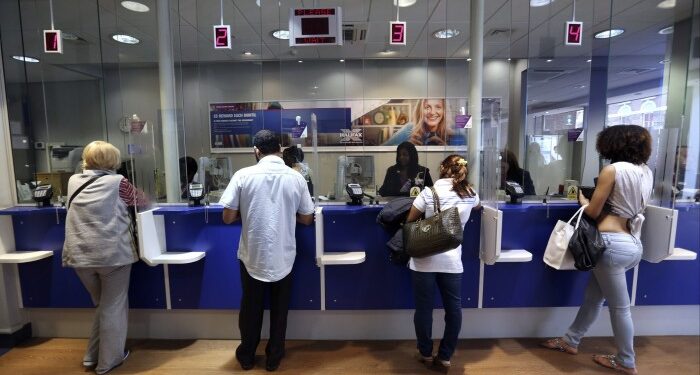Unlock the Editor’s Digest for free
Roula Khalaf, Editor of the FT, selects her favourite stories in this weekly newsletter.
It is more than a quarter of a century since the individual savings account — the tax-free investment wrapper — was launched in the UK. With it was born the concept of the Isa season, the current run-up to the April 5 tax year end during which investors rush to make the most of their £20,000 annual tax-break entitlement.
But if many vocal reformers in the City of London have their way, this season could be the last during which investors have so much freedom in allocating their money: the full tax break is available regardless of whether you park your money in a cash Isa or a stocks-and-shares Isa.
The Financial Times revealed last month that chancellor Rachel Reeves was being lobbied hard to restrict or eliminate the tax break on cash Isas and instead give clear preference to investments in equities or bonds — a move that would align tax incentives with her persistent mantra of economic growth, while also generating extra business for the insurers and asset managers leading the push.
The logic is compelling. But it is unclear quite how receptive Reeves will be to the appeal. Treasury officials have sounded cautious, with one describing any prospective change as a “big deal” that could alienate millions of savers. In recent days a groundswell of savers, consumer groups and building societies has spoken out in favour of the status quo. On the other hand, the new City minister Emma Reynolds struck a reformist tone last week when she asked a House of Lords committee: “Why have we got hundreds of billions of pounds in cash Isas? We have failed to drive an investment culture.”
According to an AJ Bell analysis of the most recent HMRC data, 14mn of the country’s 22mn Isa investors were only invested in cash. In part thanks to inferior returns, though, they house less than £300bn, compared with more than £400bn in stocks-and-shares Isas.
Over the whole lifetime of Isas, that outperformance has been dramatic. In a study published last year to mark the product’s 25th anniversary, US asset management group Vanguard revealed that anyone who had saved the maximum possible into Isas since their 1999 launch would have accumulated £306,560 before any investment return. That might have grown to more than £360,000 in a cash Isa, Vanguard said. But pegged to global equities, it would have nearly tripled in value to almost £900,000.
Clearly a stocks-and-shares Isa, like any equity investment, can decline in value as well. But over the long term, history suggests the outperformance will be significant. That can obviously be of benefit to individual Isa investors and their spending power. But it could be doubly productive economically if the money is directed towards UK stocks.
Other leading economies use tax breaks to funnel investment in certain directions — Australian pensions, for example, are given an incentive to direct funds into Australian stocks.
For British investors, there is actually a disincentive thanks to the stamp duty charged on domestic equities (though not on foreign ones). City figures say Reeves has indicated in recent meetings that it would be economically impossible to remove the duty, given the £3bn-plus it raises in revenue every year.
But there are at least two clear Isa reform options that could be broadly neutral from a tax point of view, while potentially aiding economic growth.
First, Reeves could reinstate some of the distinctions made between cash and stocks and shares Isa allocations in the original 1999 design. While some kind of cash element is sensible — to encourage the accumulation of a household safety net — it does not need to be anywhere near as generous as the current £20,000 a year. Something like a £5,000 upper limit for a cash Isa, and an additional £20,000 in stocks and shares, could spur a powerful revival in the UK’s moribund equities culture.
Second, even if stamp duty on UK share purchases overall is too valuable to tinker with, why not examine the practicability of eliminating it, or reimbursing it, when UK shares are bought via a stocks and shares Isa?
The widespread culture of stock market investing in the US has enriched households across the country, in part via attractive tax-incentivised schemes such as the 529 education savings plans and 401k pensions. US equity performance in recent years, driven by the country’s tech giants, has helped too. But whether British investors are attracted by stocks in the UK, the US or anywhere else, it is high time the country’s tax system encouraged more economically productive behaviour than parking £20,000 a year in a cash account paying 5 per cent tax-free interest.






